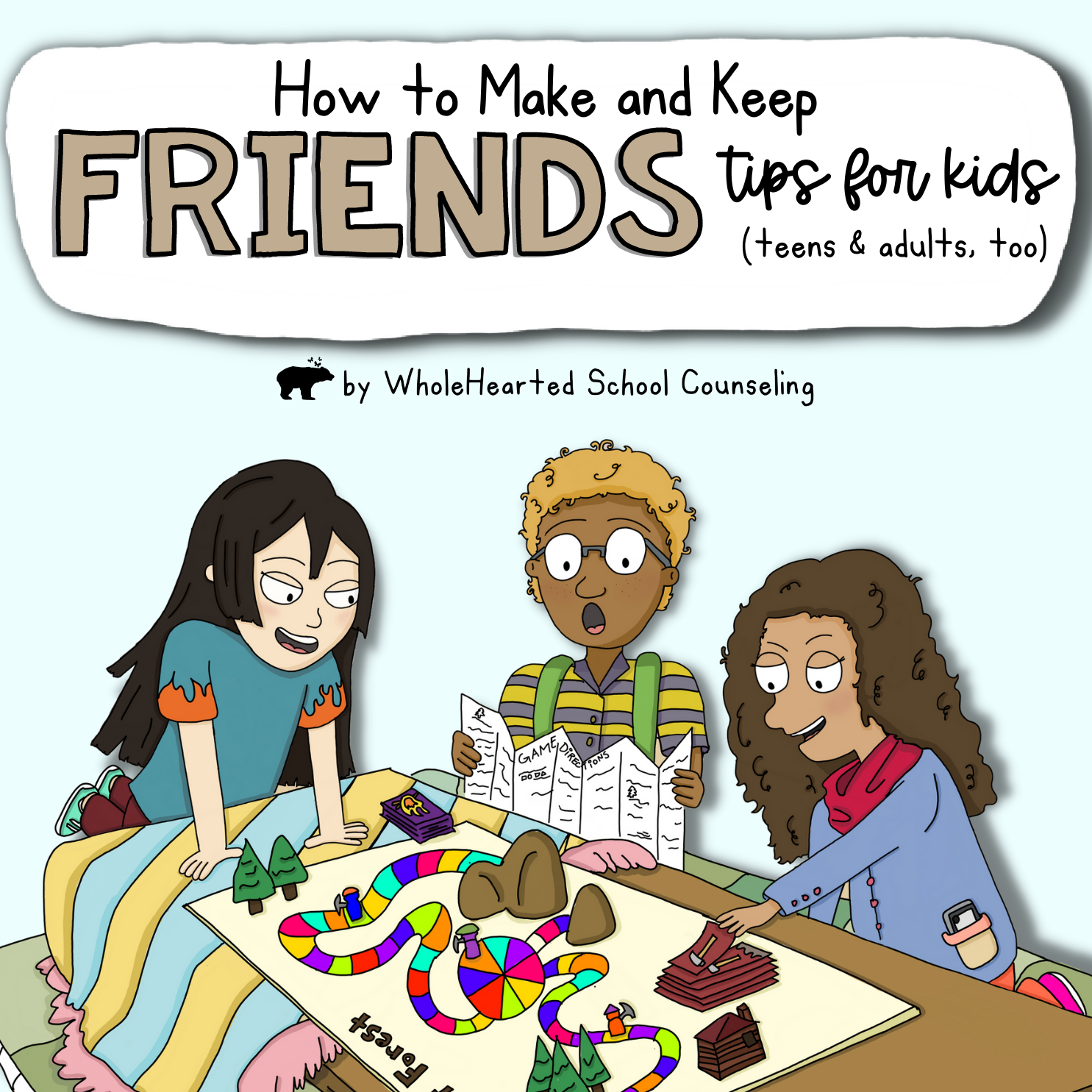
10 SUGGESTIONS FOR KIDS ON BEING A GOOD FRIEND
Whether your child is an introvert or extrovert, enneagram 8 or 3, feels love from words of affirmation or quality time, these 10 Friendship Tips for Kids are relevant and attainable for everyone! Full transparency here: these social skills strategies are written to support any age relationship. Even as an adult, and with years of experience supporting students and my own kids with conflict and relationship skills, I catch myself needing a little reminder sometimes.
You can find a link to my FREE Friendship Tips for Kids poster to hang in your home, school or workspace HERE!
1. To Have Good Friends, You Have to Be a Good Friend!
If you are struggling with a relationship, make a list of your three most important qualities in a friendship. Is it: Listening to you when you are trying to figure something out? Perhaps it’s, invites you to hang out to have some fun together? Or is it talks to you about what’s going on in her or his life? Whatever your list is, spend some time to write it down or think about it.
Then, take a minute to reflect on whether or not YOU have been faithful in providing these qualities to your friendship. Oftentimes when we are struggling in a relationship, we are not putting our best foot forward, either. In other words, being self aware allows you to be open, supportive, and invite in new healthy friendships.
2. Invest Time in Self-Discovery! And be a Good Friend Towards Yourself.
This is one of my favorite friendship tips for kids: the more you know and like yourself, the easier it will be to find friends who treat you the way you wish to be treated.
Some questions you can start with:
What things are you passionate about? Helping animals, mastering a trampoline backflip, reading 20 new chapter books this year, or finding the best fishing lure for bluegill.
What makes you unique and beautiful? Your curly hair, your quirky family, my cochlear implants, the gap in my teeth, my style, my language/ethnicity/culture, or my life experiences.
3. Diversify Your Friendships!
Try to have lots of different kinds of friends. There is no such thing as a one-size-fits-all friend. Because you are unique and beautiful, no friend will be just like you. Enjoy getting to know people for their differences and unique interests. Chances are you’ll learn something new and you’ll find something new you might just enjoy, too!
4. Continue Being YOU!
One way to meet new friends is to follow your curiosities, interests, and passions. In other words, do what you like to do and you will likely meet others who share common interests as you.
Refer back to your list you made in #2. Keep discovering, exploring, and pursuing all the things that you’re passionate about. When you do this, friends will naturally find you! (Give yourself permission to pivot and find new interests, too!)
5. Stay Strong and Confident in Who You Are!
Make friends with people who like and accept you for YOU! You shouldn’t have to mold yourself, change yourself, or pretend to be someone you’re not just to fit into a friendship. Trying something new or stepping outside your comfort zone is absolutely ok when making and keeping friends, but your friends should like you and accept you for all that you are!
6. Listen to Understand, Not to Respond.
Sometimes we get so caught up in wanting to contribute to the conversation that we don’t truly hear what the other person is saying. Our friends or family are then left feeling unheard or frustrated because we turned the conversation to ourselves. If you find yourself in this situation, pause, ask the person to repeat and keep in mind, you’ll have your turn to share, too!
Remember: Good friends listen to each other, encourage each other, show they are interested in each other, respect one another, and help each other out. Good friends show empathy towards each other.
7. Compromise.
This is another very important friendship tips for kids: learning how to compromise. Oftentimes kids think of this as giving in. But that’s not it, at all! Conflict between friends is normal and a good friend will put in the effort to work it out. This may mean meeting in the middle, showing empathy by seeing the other person’s perspective, and finding a solution that works for both friends.
8. Refuse to Say Unkind Things About Your Friends.
We all make mistakes. This is a part of learning and growing as individuals and in relationships. Refraining from saying unkind things about your friends, even when they make a mistake, shows you truly value that person, accept them for who they are, and want to be a part of their growth.
It can be easy to get caught up in the rumor mill, or gossip chain, but being a good friend also means squashing conversations when others want to speak negatively about your friends. Walking away from the conversation also shows that you are not interested in saying unkind things and you are standing up for your friend.
9. If You Make a Mistake, Apologize.
If your friend makes a mistake, try to forgive them and move on. This can be a hard one because oftentimes, our feelings or our friends’ feelings are hurt.
When this happens, it’s okay to ask a trusted adult for help to process the problem before talking with your friend. They can give you advice or help you practice what you want to say by not allowing the emotion to take over the conversation. When your friendship is worth saving, pull out a coping skill from your toolkit, practice empathy, ask for help, and work it out.
10. Show and Speak Gratitude.
Find ways to show your friends that you appreciate and care about them.
You can simply tell them in person or in a note. Or bake them their favorite cookies. Better yet, help them clean their room. Another idea is to draw them a special picture or make them a friendship bracelet. Remember, there are many free and fun ways to show your friends you care about them, whether it’s a new friend, or one you’ve had since pre-k. Once you learn more about each other, you’ll know just what they like and how to make sure they know how much you appreciate them, always.
Some Fun Ways to Reinforce Ways to Make & Keep Friends
Another fun way to teach about these friendship tips is through games! You can use The Friendship Card Game to depersonalize common friendship issues and help students build social skills to handle difficult situations. Plus kids don’t even realize they are learning social skills since they have so much fun playing!









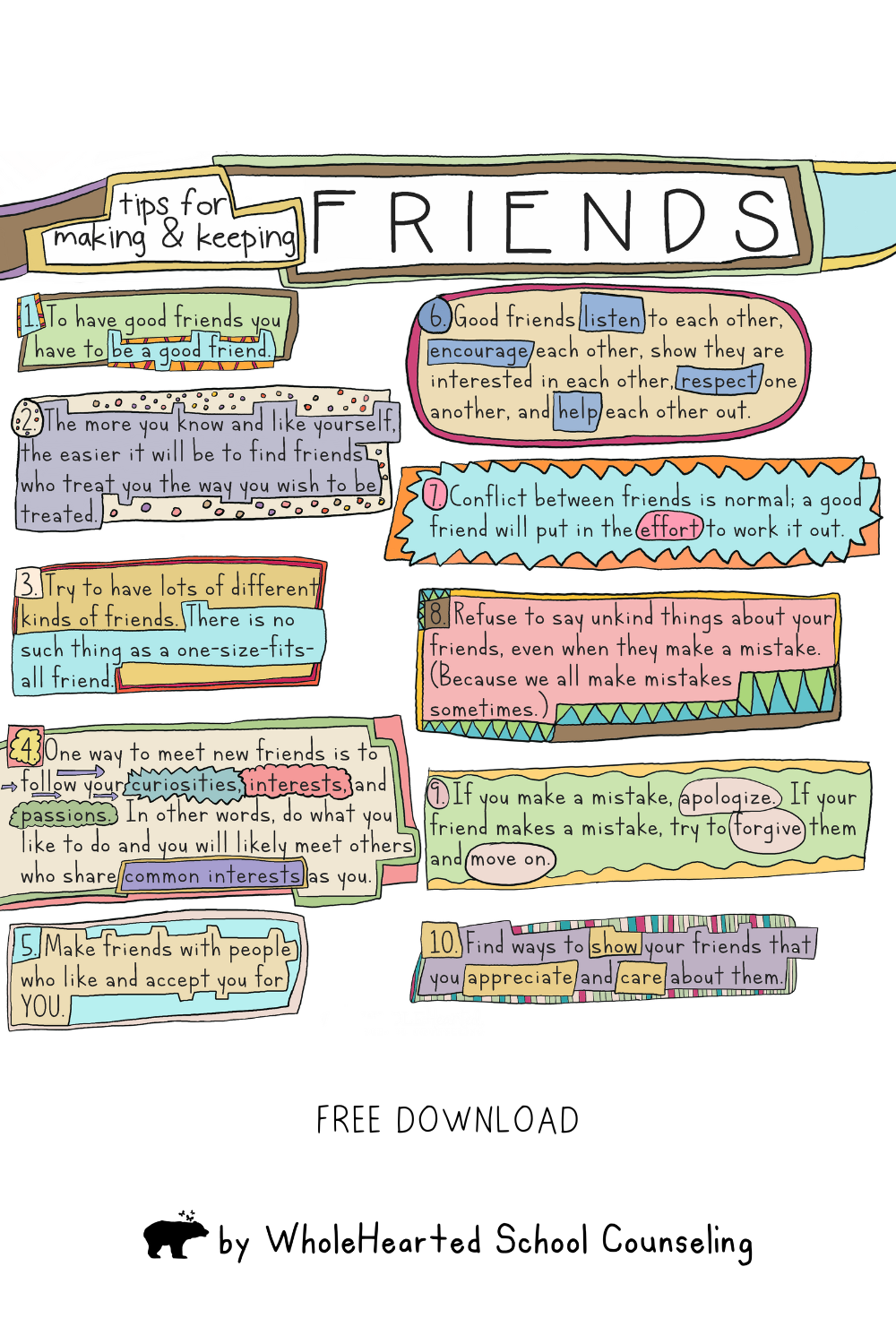
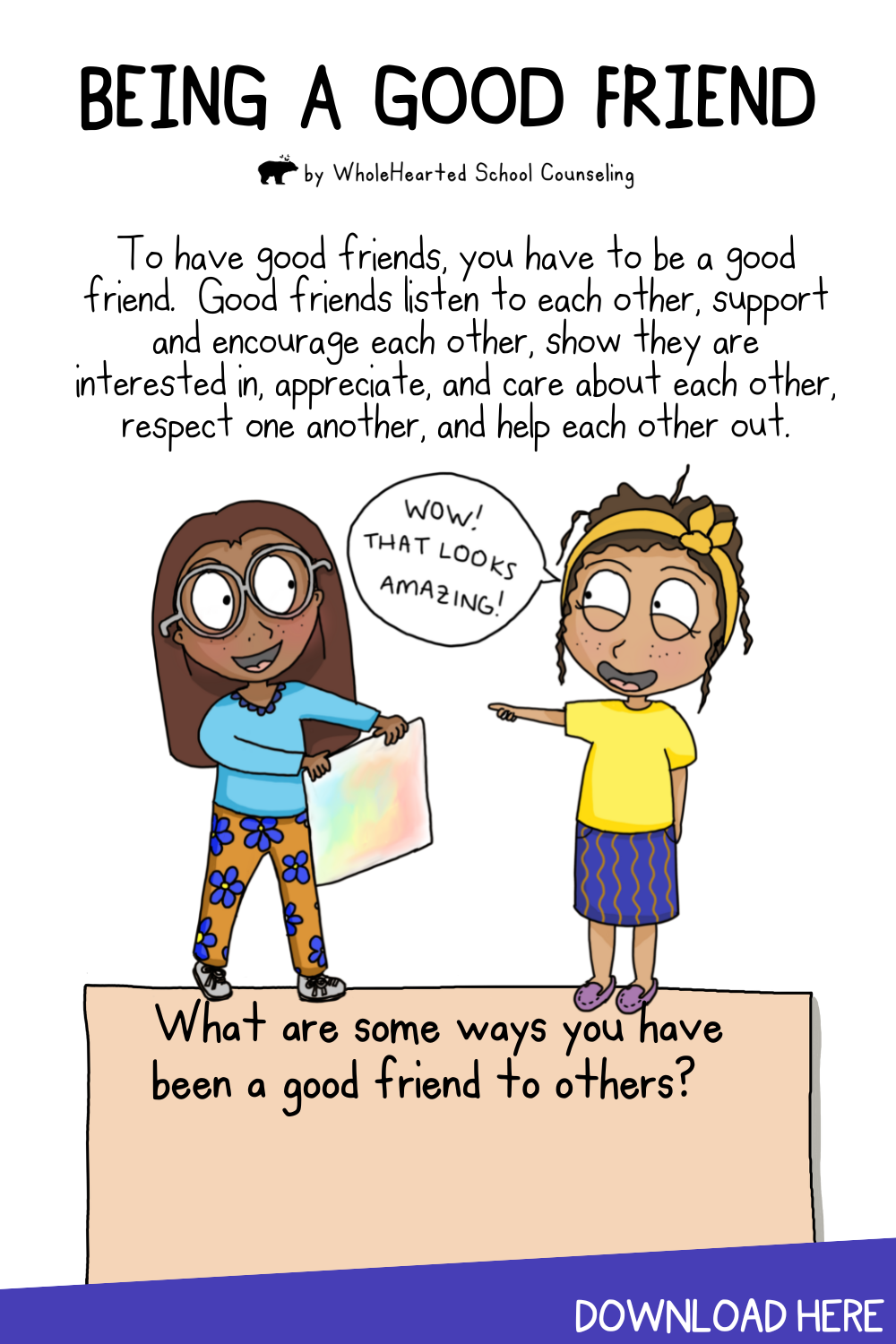
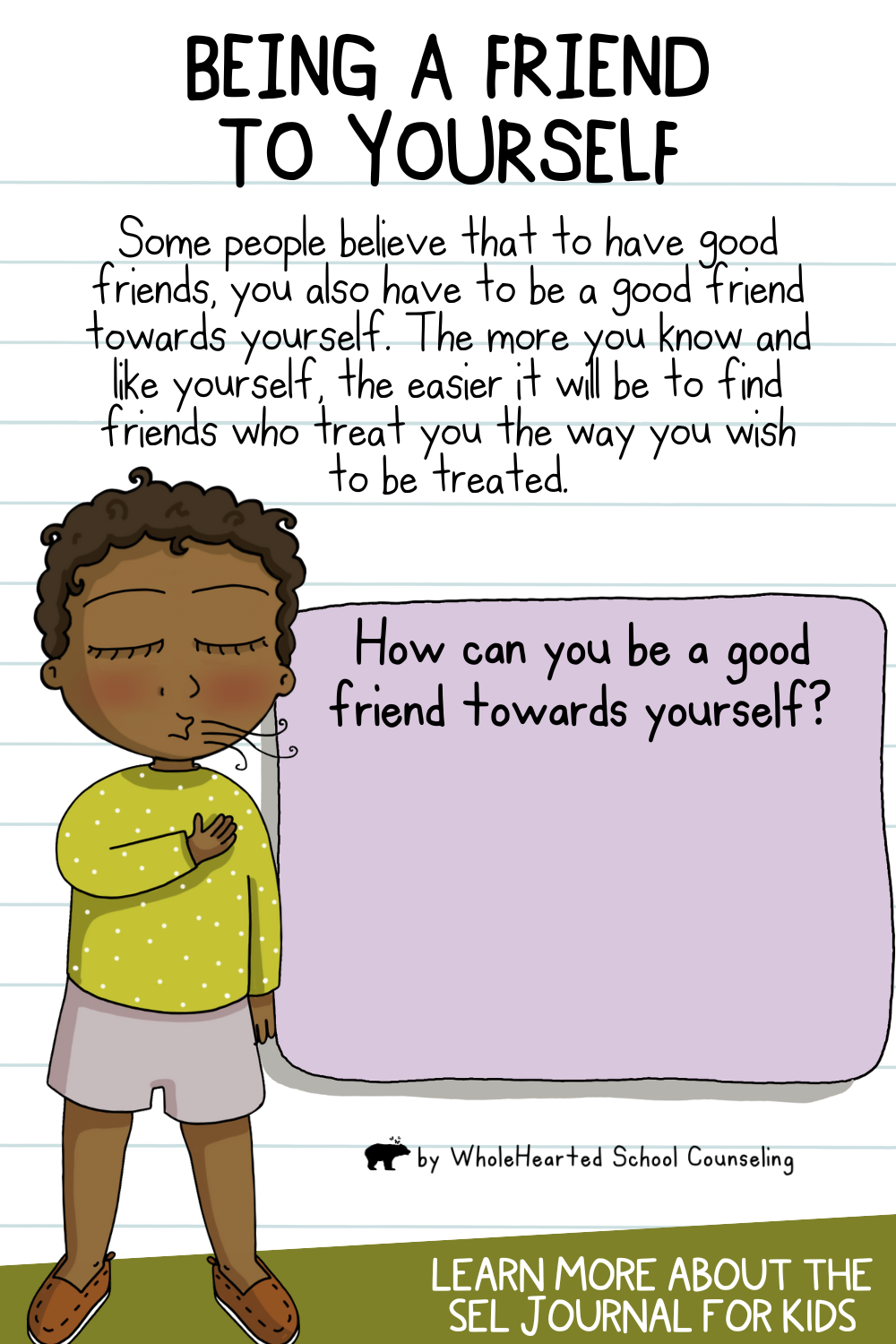
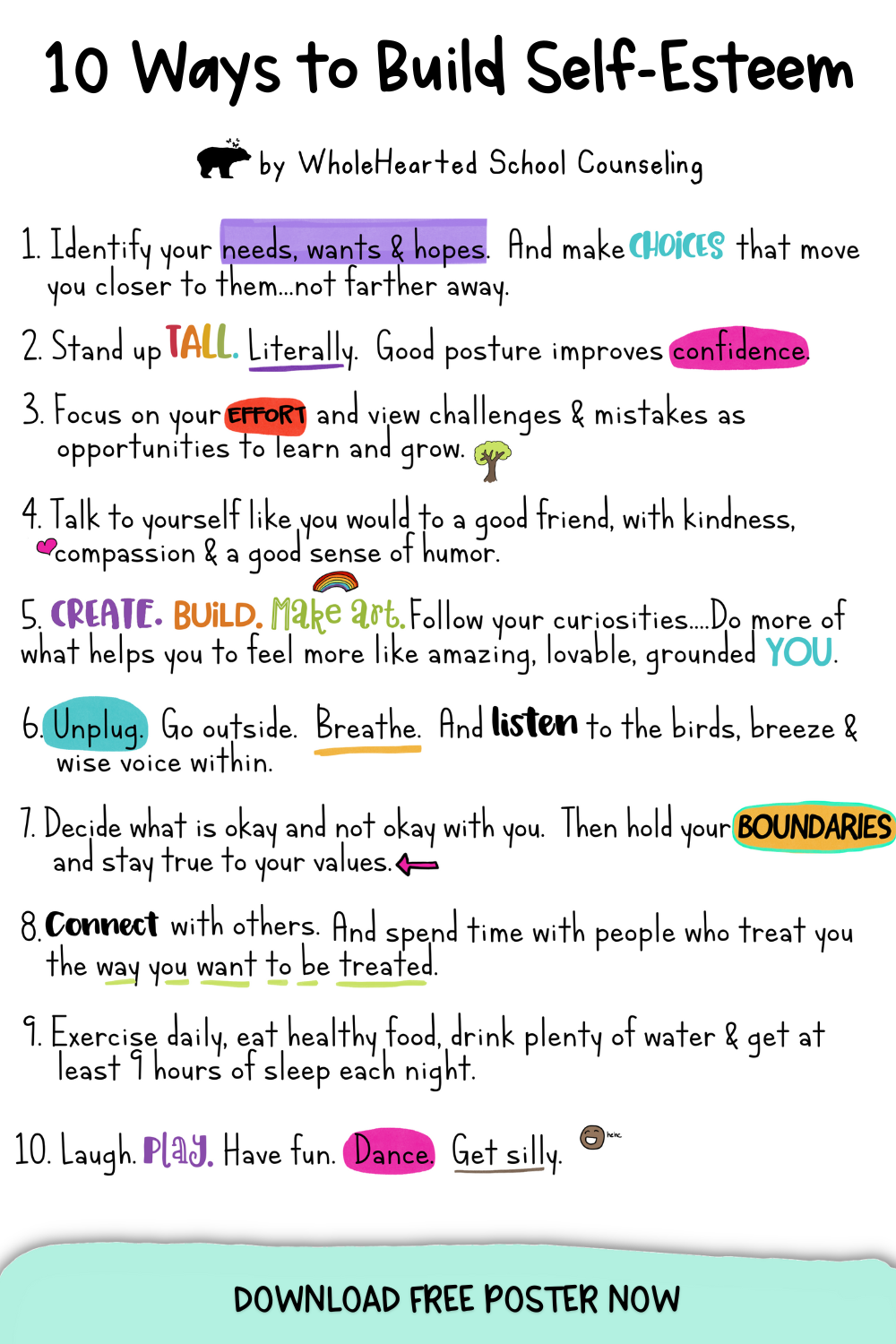
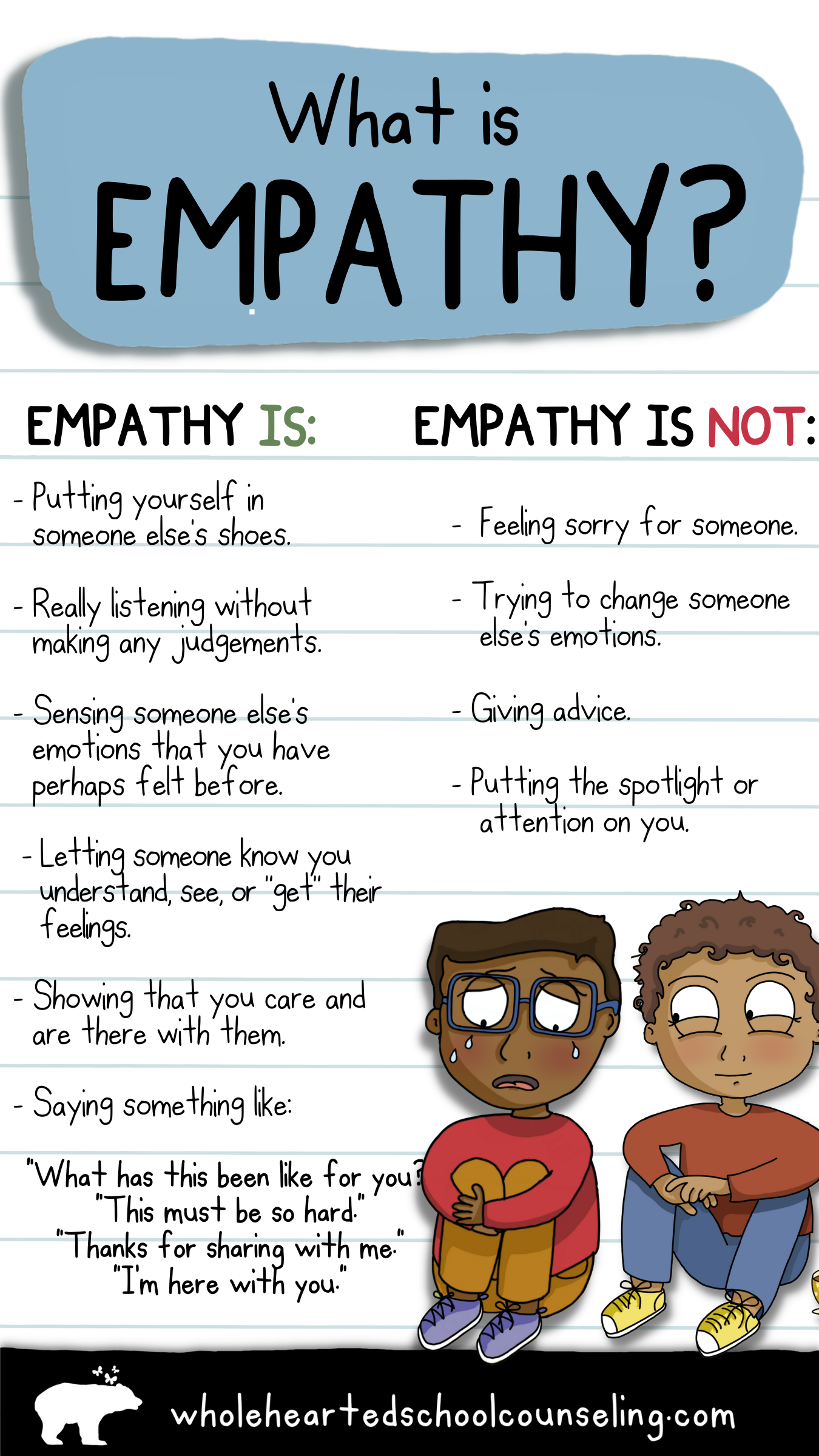
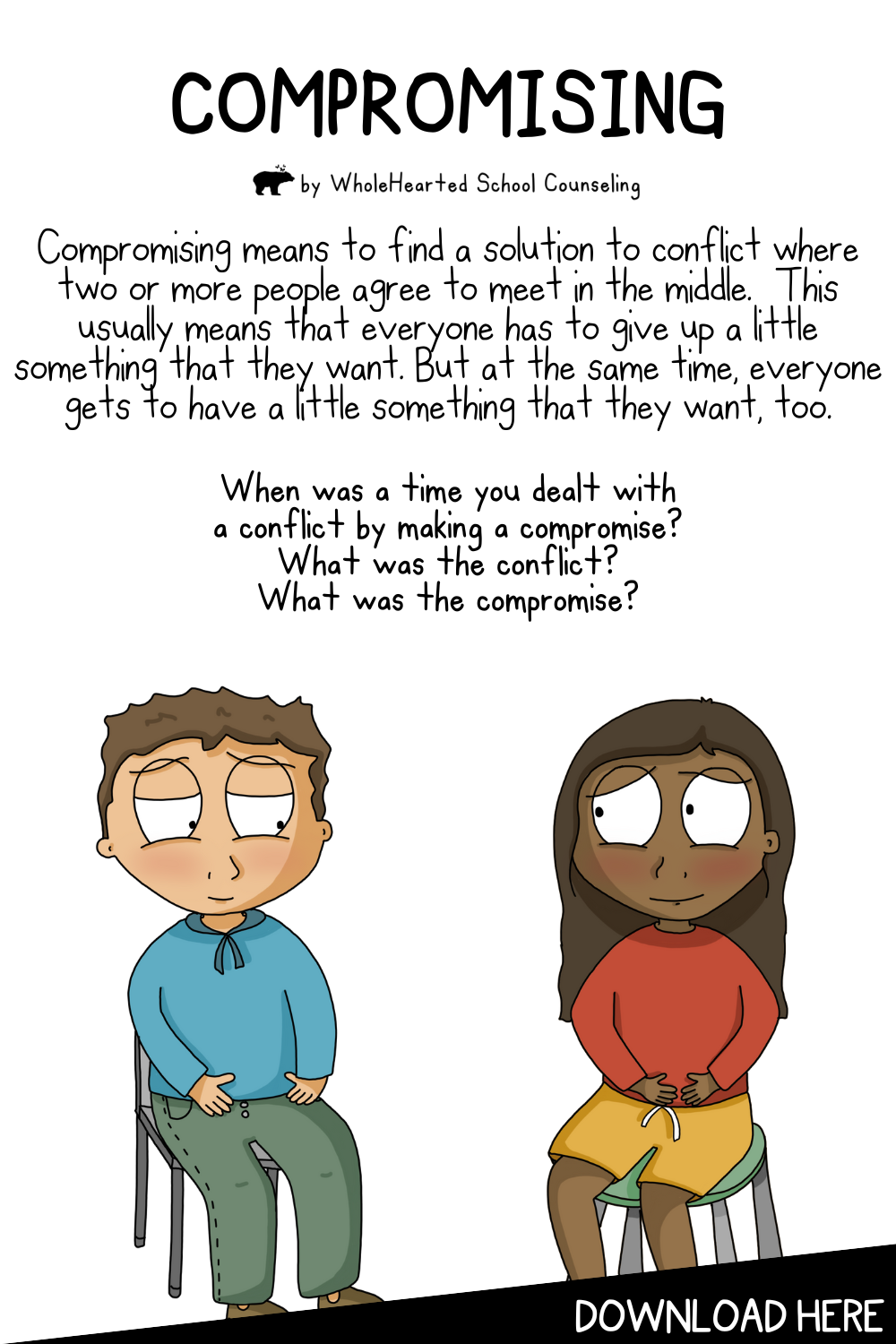
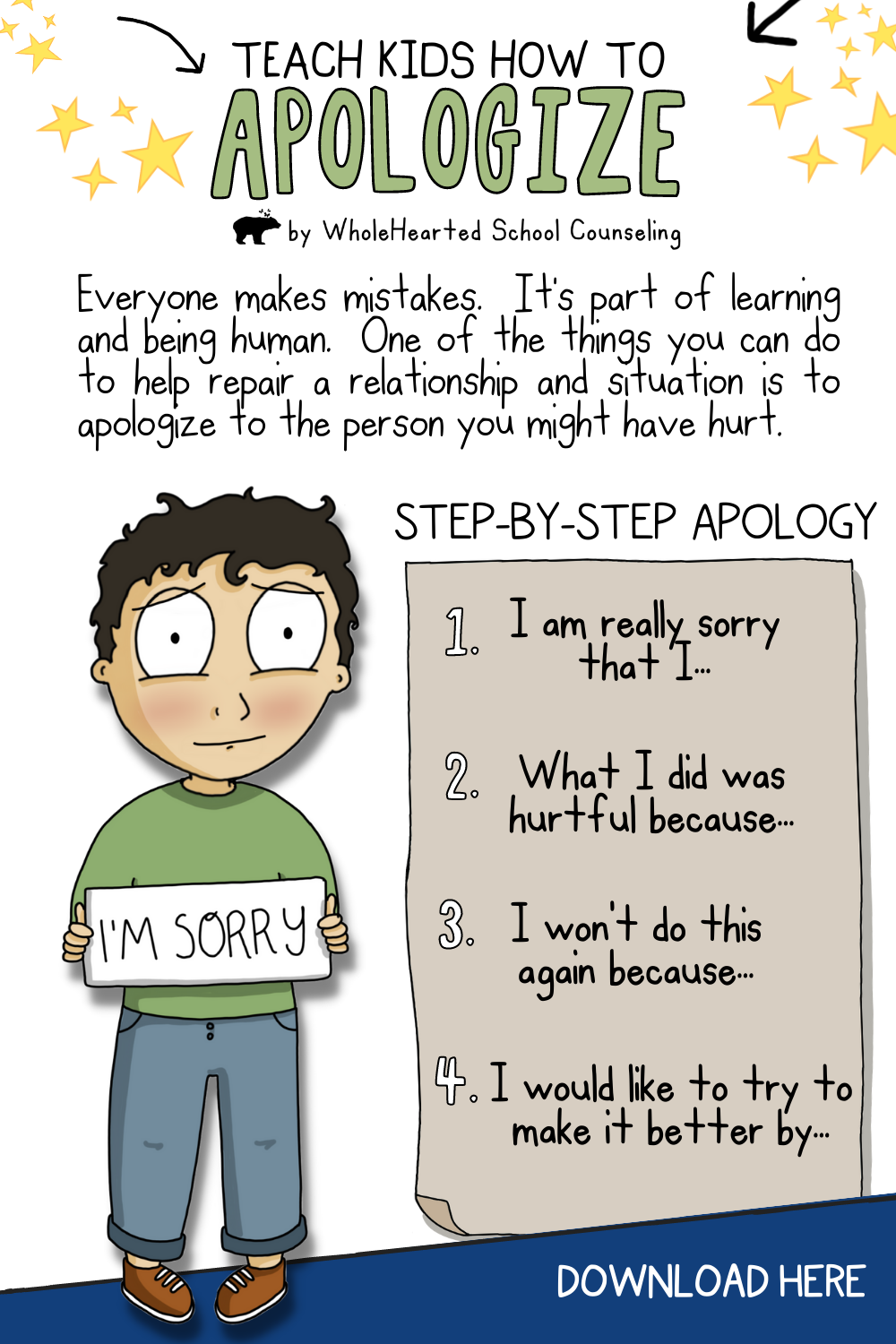
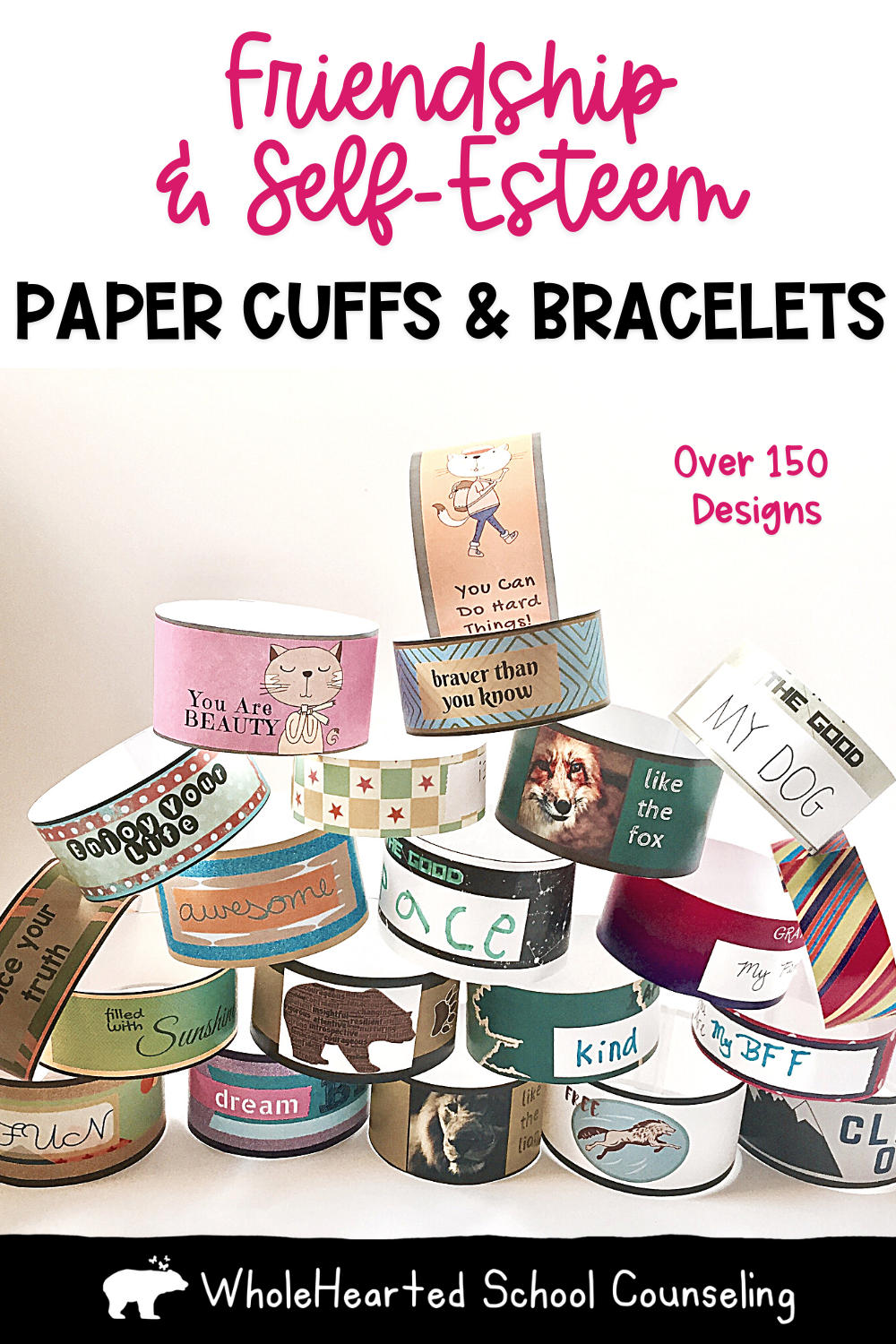
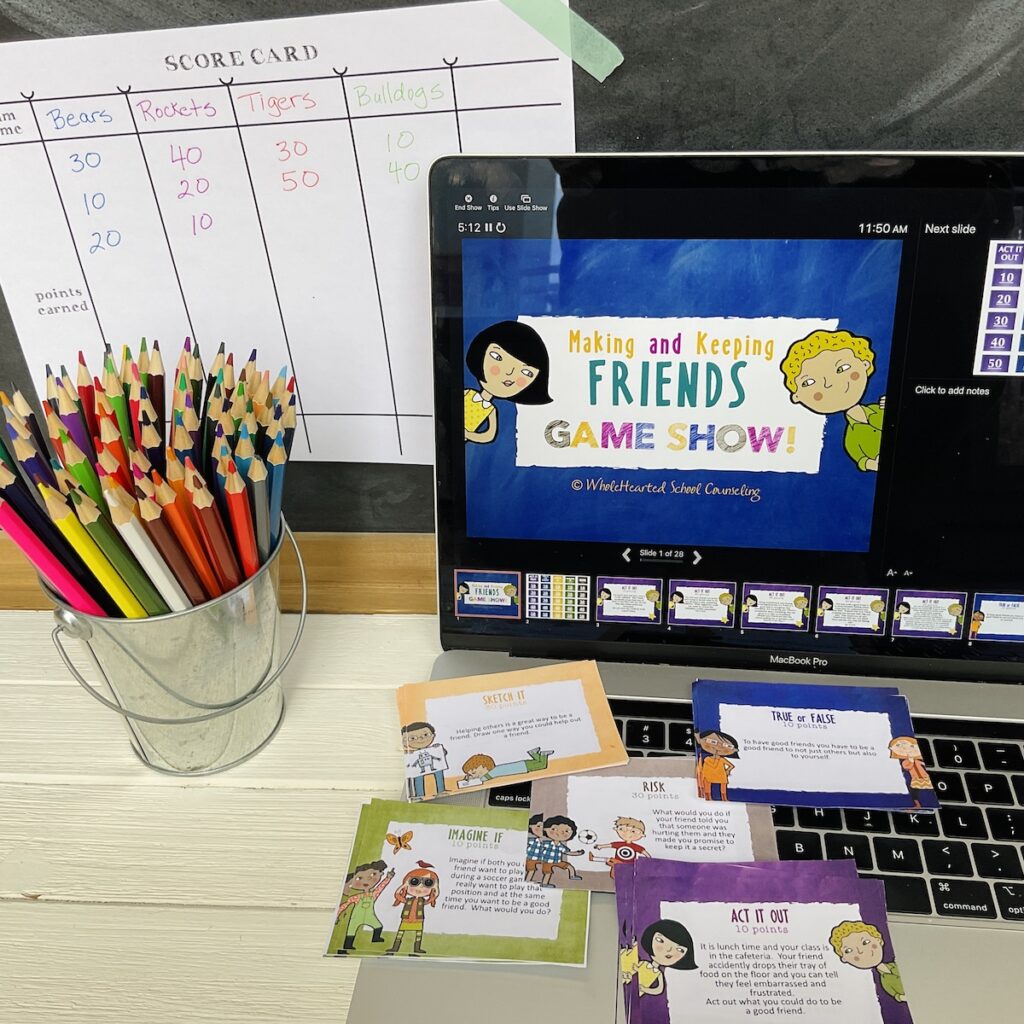
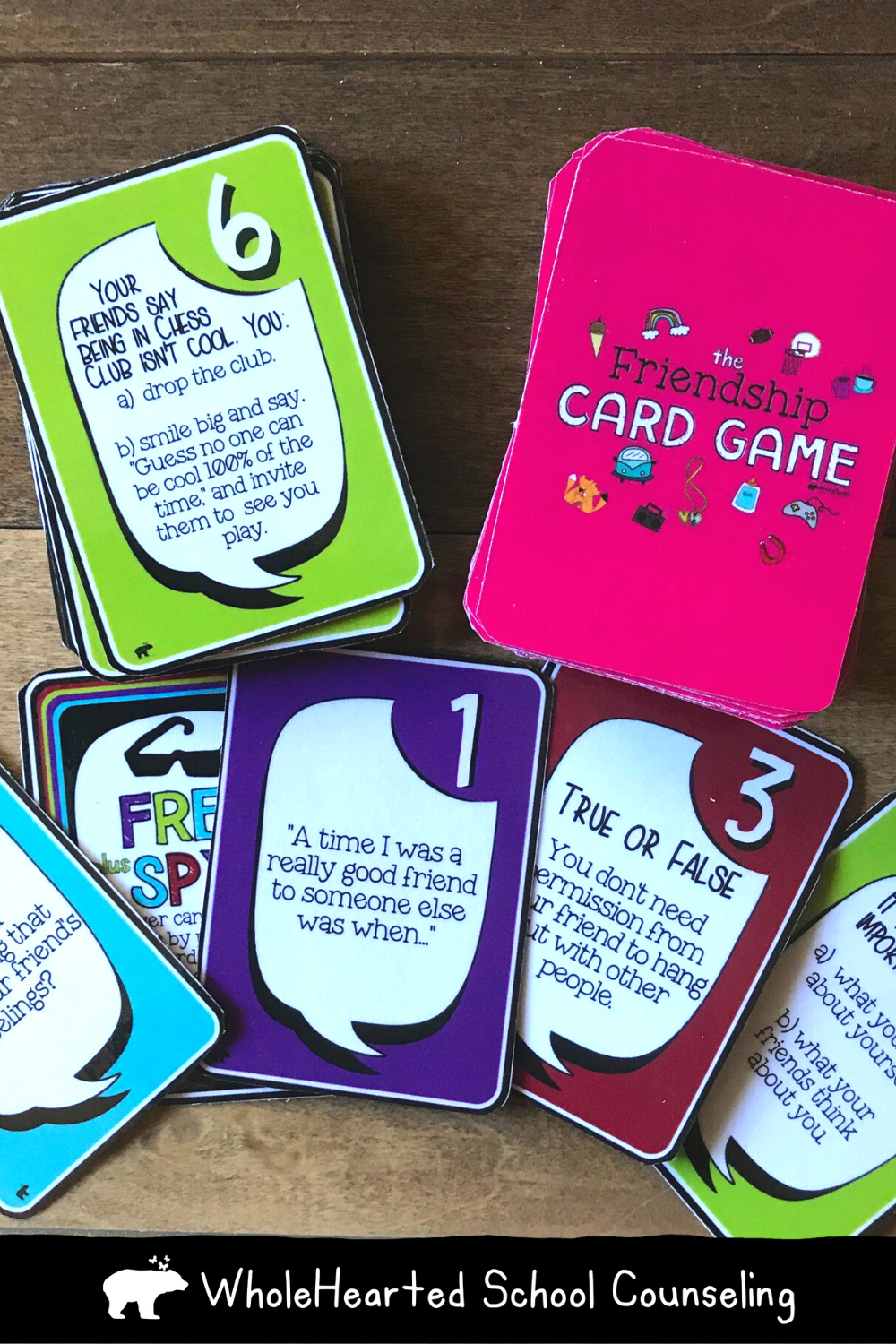

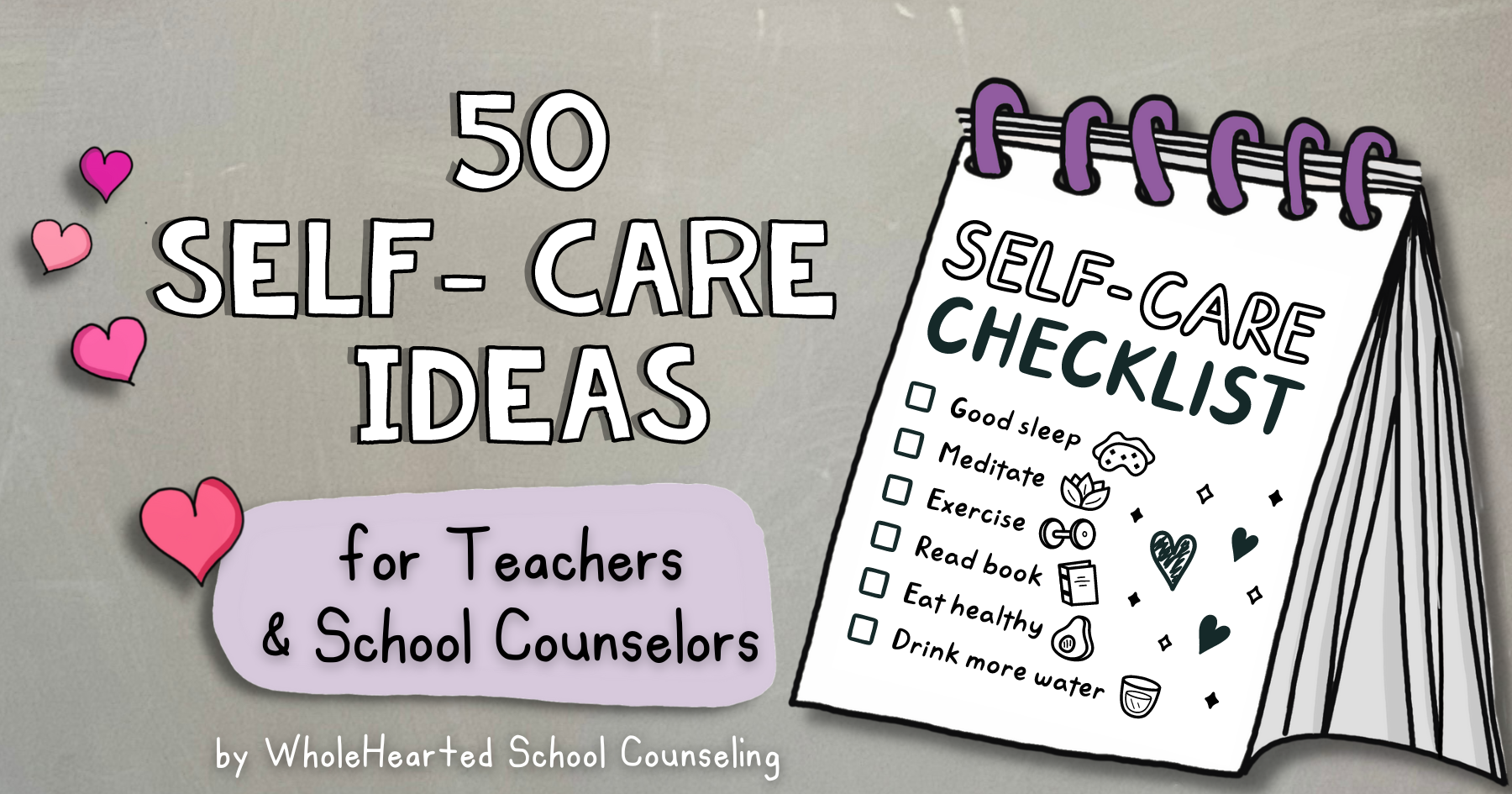
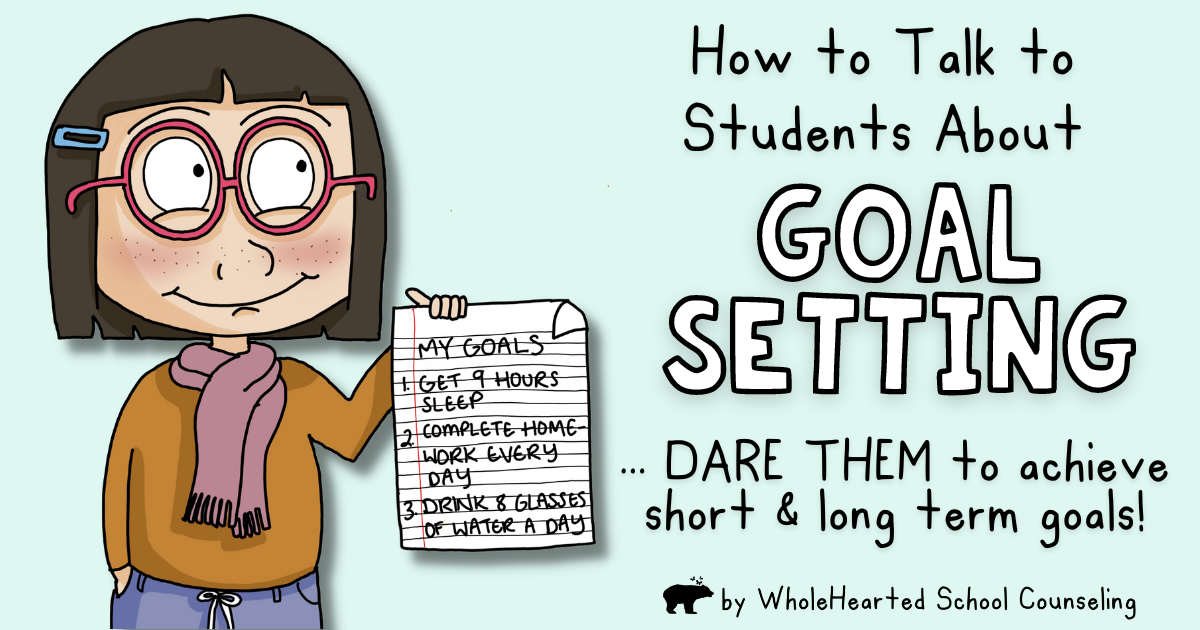



One Comment
Nice and helpful tips that kids can follow through it.